Horizontal
ANEC - The Movie! World Consumer Rights Day 2018
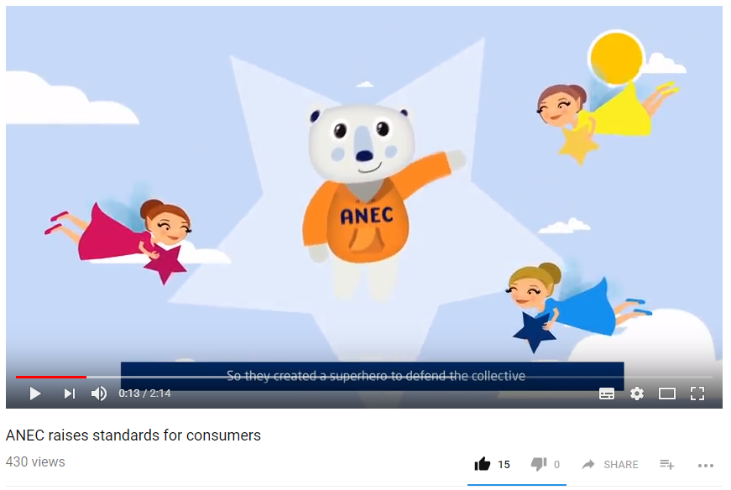 On 15 March, ANEC joined the global consumer movement in celebrating World Consumer Rights Day. And to mark the occasion, we released a short and colourful video to explain the role of ANEC in improving consumers’ everyday lives through standards. Please watch it!
On 15 March, ANEC joined the global consumer movement in celebrating World Consumer Rights Day. And to mark the occasion, we released a short and colourful video to explain the role of ANEC in improving consumers’ everyday lives through standards. Please watch it!
ANEC also joined CEN-CENELEC in developing an infographic explaining how standards help create fair and secure digital market places consumers can trust.
Too many dangerous consumer goods in the EU
On 12 March, Věra Jourová, European Commissioner for Justice, Consumers and Gender Equality, presented the 2017 Rapid Alert system (RAPEX) report for non-food products. In 2017, more than 2,000 non-food products failing safety requirements were notified under RAPEX. But this figure may show only the tip of the iceberg due to insufficient market checks. In a press release, ANEC joined BEUC in calling on the European Commission (EC) to strengthen market surveillance urgently.
ANEC/BEUC position on cybersecurity of connected products
On 7 March, ANEC and BEUC published a position on the ‘Cybersecurity of connected products’. Naturally, as the Internet of Things ecosystem grows, the exposure of connected products to a possible cybersecurity breach also grows.
In order to encourage consumer trust in the Internet of Things, consumers must be assured that the connected products they buy, or services they use, are secure and protected from software and hardware vulnerabilities. For this to happen, security by design and by default must become a priority. To this end, we suggest elements to improve the regulatory framework, as well as the European Commission’s proposal for a Cybersecurity Act.
30 years of ETSI and the 3SI Programme
29 March marked the 30th anniversary of ETSI. ANEC has been a member of ETSI since December 1996, and congratulates ETSI on building global telecoms standards in Europe since 1988.
ANEC particularly welcomes the 3SI Programme adopted last year in helping to ensure the inclusiveness of the ETSI standards development process. It was also a pleasure to see John Ketchell, the ANEC representative in the ETSI General Assembly, elected as the first “3SI Advocate”.
In March, ETSI published a leaflet on the 3SI Programme. To learn more, visit the dedicated webpage on the ETSI website.
Accessibility
Winner of the Silver Economy Awards to be announced soon
The Covenant on Demographic Change, of which ANEC is a member, has assessed 71 applications received for the Silver Economy Awards. 30 applications spread between public authorities, non-for-profit organisations and for-profit organisation - the three eligible categories for the award - have been shortlisted. The finalists will be known in April, and winners announced at the EU Silver Economy Awards on 3 May in the Committee of the Regions, Brussels.
Child Safety
ANEC Child Safety WG meets in Brussels
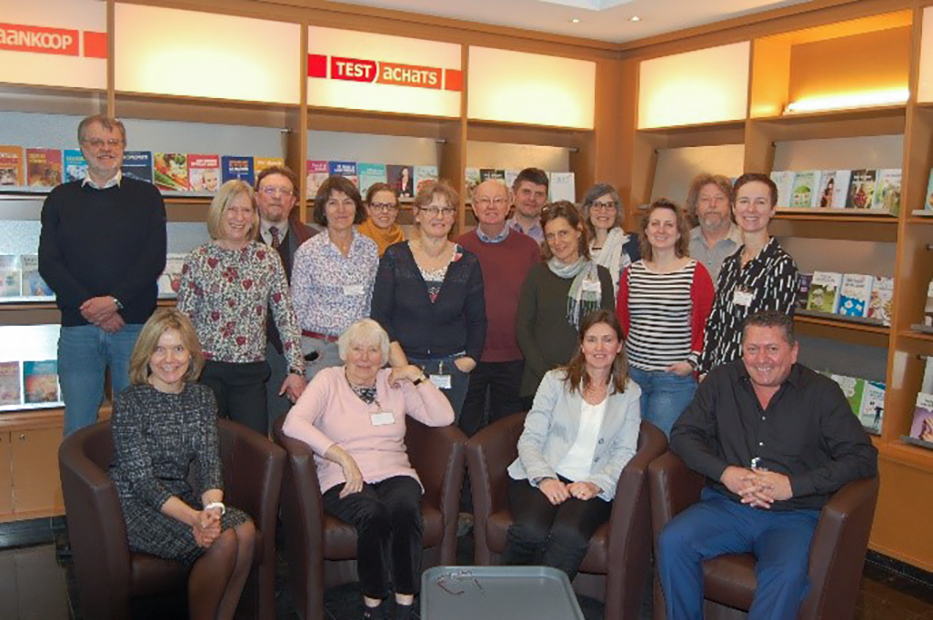
On 13-14 March, the ANEC child safety experts met in Brussels for their annual meeting. They discussed achievements and upcoming challenges in standardisation work on toys, playground equipment, child care articles, children’s furniture and other products related to child safety.
A training exercise to ‘design a child’ was kindly prepared and led by Mike Hayes. The idea of the exercise was to define the characteristics, abilities, motor skills, etc., for a child of a specific age group, and then to link these data to a specific product in order to have a better understanding of which requirements are needed when writing or improving standards for those products.
We must thank WG co-Chairs, Anne Smith and Helen Amundsen, and all our volunteer experts, for their participation, dedication and continued commitment in making products safer for children. We also thank our colleagues from Test-Achats for having hosted the meeting.
ANEC joins in discussions on bedside sleepers
Following the death of a seven-week old baby in the UK, CEN TC 207 WG2 ‘Children’s and nursery furniture’, is considering how to address bedside sleepers in EN 1130 “Children's Furniture - Cribs and cradles”, now under revision. ANEC is active in this work. The group discussed whether to include only bedside sleepers with a defined minimum drop side height in the standard, or whether to extend the scope to include the bridging option whereby a usually-fabric side covers the gap between the bedside sleeper and the adult bed.
To ensure European standards reflect only conditions where children can sleep safely, ANEC has commissioned a Technical Study to define safe sleeping conditions for young children.
ANEC co-sponsors regional training on ‘outdoor play’
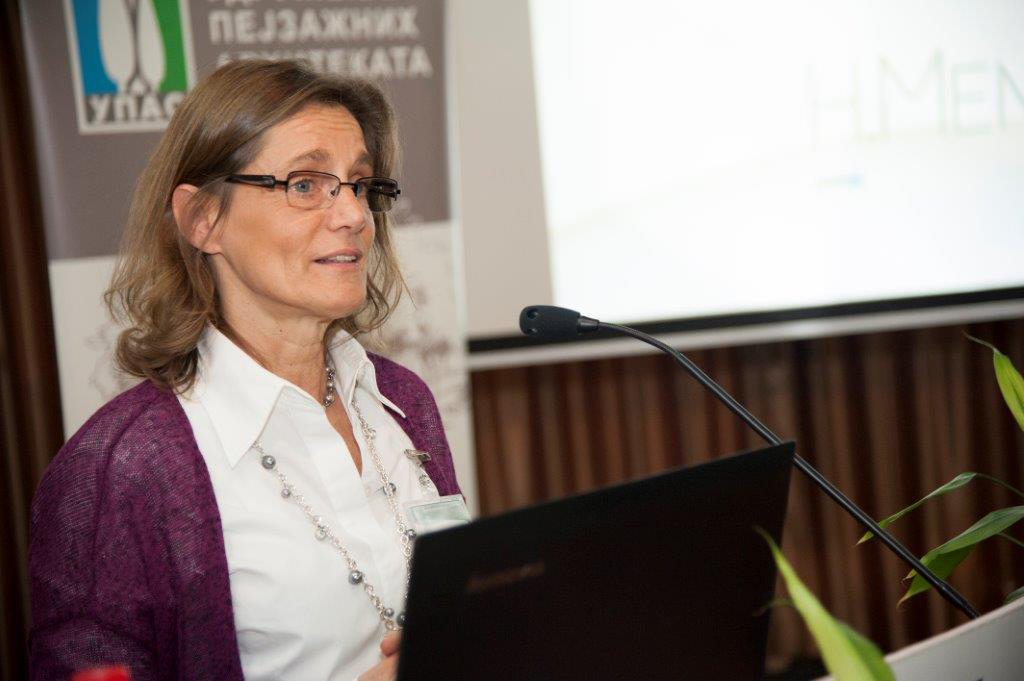 ANEC playground equipment expert, Helena Menezes, joined the “International Expert Meeting - Outdoor Play” hosted by the Serbian Association of Landscape Architects on 21-22 March in Belgrade. She was supported by the Serbian member of the ANEC General Assembly, Zoran Nikolić (NOPS).
ANEC playground equipment expert, Helena Menezes, joined the “International Expert Meeting - Outdoor Play” hosted by the Serbian Association of Landscape Architects on 21-22 March in Belgrade. She was supported by the Serbian member of the ANEC General Assembly, Zoran Nikolić (NOPS).
The regional conference, focusing on design and safety of playgrounds, was a great success. Attendees included designers, manufacturers, certification bodies, and public authorities. Helena’s presentation explained the value of European standards in the EN 1176 series for playground equipment in the design of safer play spaces.
Digital Society
ANEC Digital Society WG meeting, The Hague
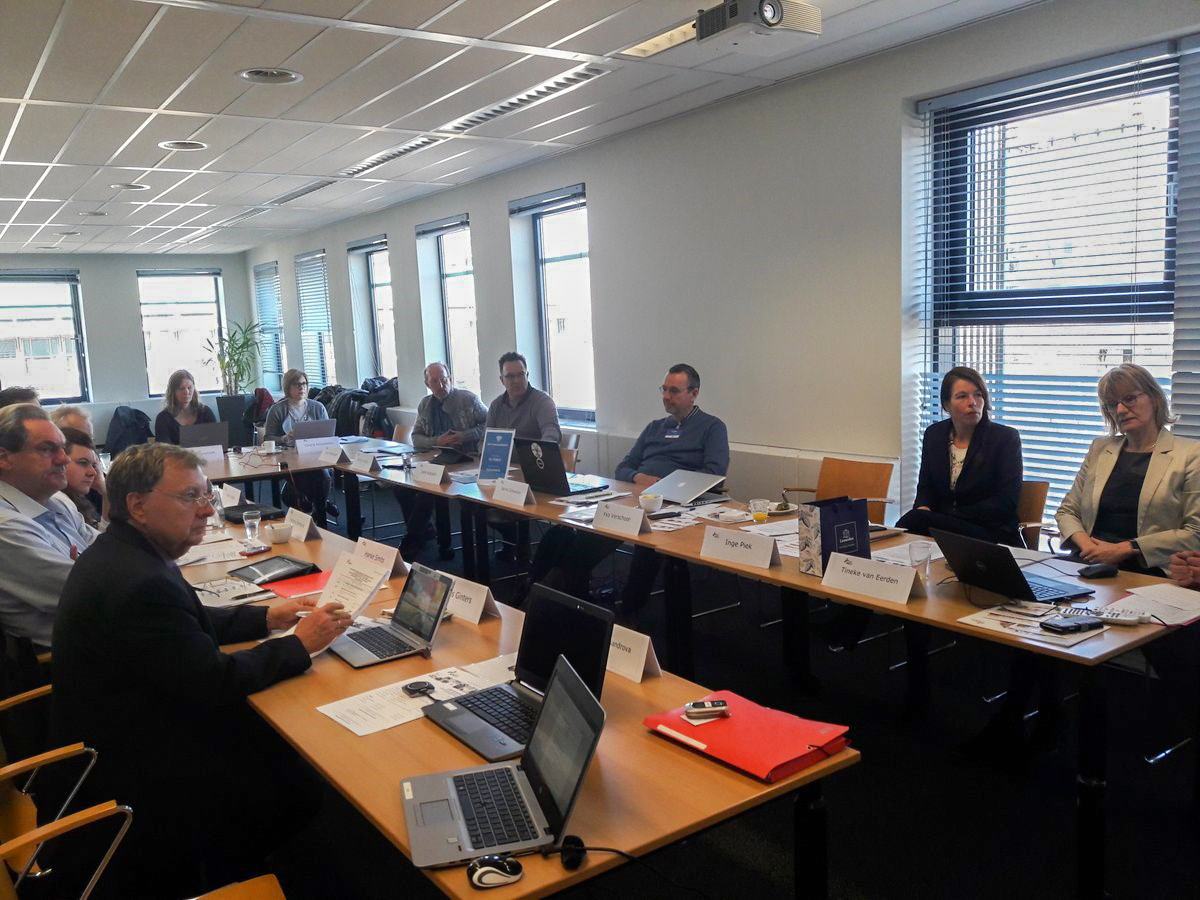 The annual meeting of the ANEC Digital Society Working Group meeting took place on 19-20 March in The Hague, kindly hosted by Dutch Consumer Organisation, Consumentenbond. Experts discussed standardisation activities, as well as new challenges, such as the impact of automated decision-making on consumer protection. An opening presentation was given by Tineke van Eerden, the Dutch member of the ANEC General Assembly, and her colleagues from Consumentenbond, focusing on activities in the digital field.
The annual meeting of the ANEC Digital Society Working Group meeting took place on 19-20 March in The Hague, kindly hosted by Dutch Consumer Organisation, Consumentenbond. Experts discussed standardisation activities, as well as new challenges, such as the impact of automated decision-making on consumer protection. An opening presentation was given by Tineke van Eerden, the Dutch member of the ANEC General Assembly, and her colleagues from Consumentenbond, focusing on activities in the digital field.
An outreach event with NEN, the Dutch national standardisation organisation, took place 19 March, to examine consumer participation in national standardisation activities, and digital standardisation.
ANEC thanks Consumentenbond for its hospitality.
New CEN Workshop Agreement, ‘Journalism Trust Initiative’
A CEN Workshop Agreement (CWA), ‘Journalism Trust Initiative’, has been proposed by Reporters without Borders. It is aimed at developing a verifiable set of rules and benchmarks for trustworthy news and journalism.
Reporters Without Borders (RSF) are supported by the Global Editors Network (GEN), European Broadcasting Union (EBU), and Agence France Press (AFP). The objective of the CWA is to provide tools to address ‘fake news’. A kick-off meeting is foreseen in May and the work should be concluded next year.
Domestic Appliances
ISO PC 294 ‘Guidance on Unit pricing’
ISO PC 294 ‘Guidance on Unit Pricing’ accepted ANEC’s request for liaison membership in March 2018. Unit pricing of household products is relevant for European consumers in facilitating comparison of prices.
The legibility of displayed unit prices on shelves in stores is one area of concern. Complaints about illegible unit prices have been reported frequently, and small font size present a major difficulty. Unit prices displayed on lower shelves cause problems specifically due to the larger viewing distances. Unit prices displayed on upper shelves can cause similar problems. Technical guidance addressing the legibility of unit prices would help to solve these problems, and help retailers and market surveillance bodies take legibility into account.
ISO DIS 21041 ‘Guidance on Unit Pricing’ is out for comment until the end of April. ANEC will submit comments, as well as a proposal for an annex on the legibility of unit prices on shelf edge labels displayed in-store.
Sustainability
European Commission Plastics Strategy – what next?
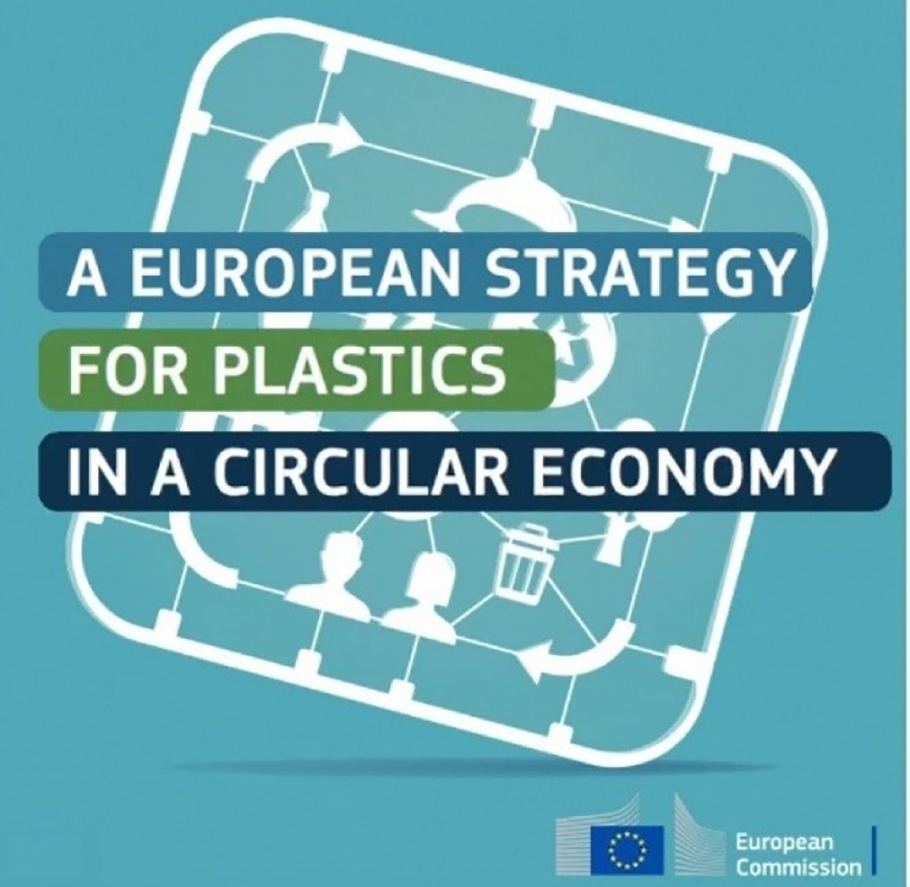 The recently published EC initiative under the Circular Economy Action Plan, the European strategy for plastics in a circular economy, is the first ever Europe-wide strategy on plastics.
The recently published EC initiative under the Circular Economy Action Plan, the European strategy for plastics in a circular economy, is the first ever Europe-wide strategy on plastics.
One of the main goals of this strategy is to make all plastic packaging on the EU market recyclable by 2030. Thus, the consumption of single-use plastics will be reduced and the intentional use of microplastics restricted.
Plastic and packaging waste is a major issue for consumers. ANEC believes every action to reduce plastic waste should be guided by three principles: the ‘prevention at source’ principle, the ‘polluter pays’ principle, and the ‘precautionary’ principle.
As we explain in the ANEC position paper, ‘Keeping hazards in the circle?, for a circular economy approach to be effective, there needs to be stronger focus on reuse and reduction in the consumption of materials and creation of waste. Recycling must be part of a wider concept of resource-saving that leads to high-quality products which do not expose the consumer or the environment to detrimental effects. Part of this includes ensuring hazardous substances are eliminated from the beginning of the product cycle. In the first instance, plastic waste must be reduced by prevention.
In March, EU environment ministers welcomed the strategy and called for its urgent implementation to increase recycling of plastics and reduce single-use plastic.
A legislative proposal on single use plastics will follow by the end of May 2018. The Commission will launch the work on the revision of the Packaging and Packaging Waste Directive, and prepare guidelines on the separate collection and sorting of waste to be issued in 2019.
For the full list of measures and the Commission’s timeline, see the Annex to the Plastics Strategy here.
Smart Meters & Smart Grids
Are smart meters a success for consumers?
In 2015, ANEC published a position paper ‘Monitoring the success of smart metering deployment from a consumer perspective’ identifying the desired consumer outcomes and proposing possible measures. We called on the EC to encourage Member States to assess the success of smart metering deployment, and to adopt four outcomes desired by consumers: easy access to usable consumption information; high level of satisfaction with smart metering deployment; benefit realisation; active engagement in the European energy market.
A new study, commissioned by the EC and prepared in 2017, defines a set of key-performance indicators (KPIs) that cover the four dimensions proposed by ANEC. We welcome the study and are pleased to see our proposals followed. The study recommends considering the KPIs as a starting point for discussion with stakeholders in defining a framework to monitor and compare the consumer impact of smart metering roll-outs across Member States. We trust these efforts will result in a greater focus on improving consumer experience.
News from ANEC member countries
Germany
DIN Consumer Council study: ‘Online food trade with fresh products’
In 2017, the DIN Consumer Council started the study, ‘Online food trade with fresh products - Standardisation aspects from consumer’s point of view’. The study has now concluded and the report is available. Its goal was to identify the main challenges within the German online grocery industry, with a particular look at fresh products, and to define recommendations for the development of standards. The focus was to detect issues concerning the product quality, the cold chain and the hygienic regulations along the process chain.
A copy of the full report (in German only) and an abstract (in English) can be requested (free of charge) by writing to This email address is being protected from spambots. You need JavaScript enabled to view it.
For further information, please contact This email address is being protected from spambots. You need JavaScript enabled to view it. (This email address is being protected from spambots. You need JavaScript enabled to view it.).
List of comments 2018 |
List of meetings 2018 |
For comments or if you wish to write an article for the ANEC Newsletter, please contact: Kristina Aleksandrova (This email address is being protected from spambots. You need JavaScript enabled to view it.).


